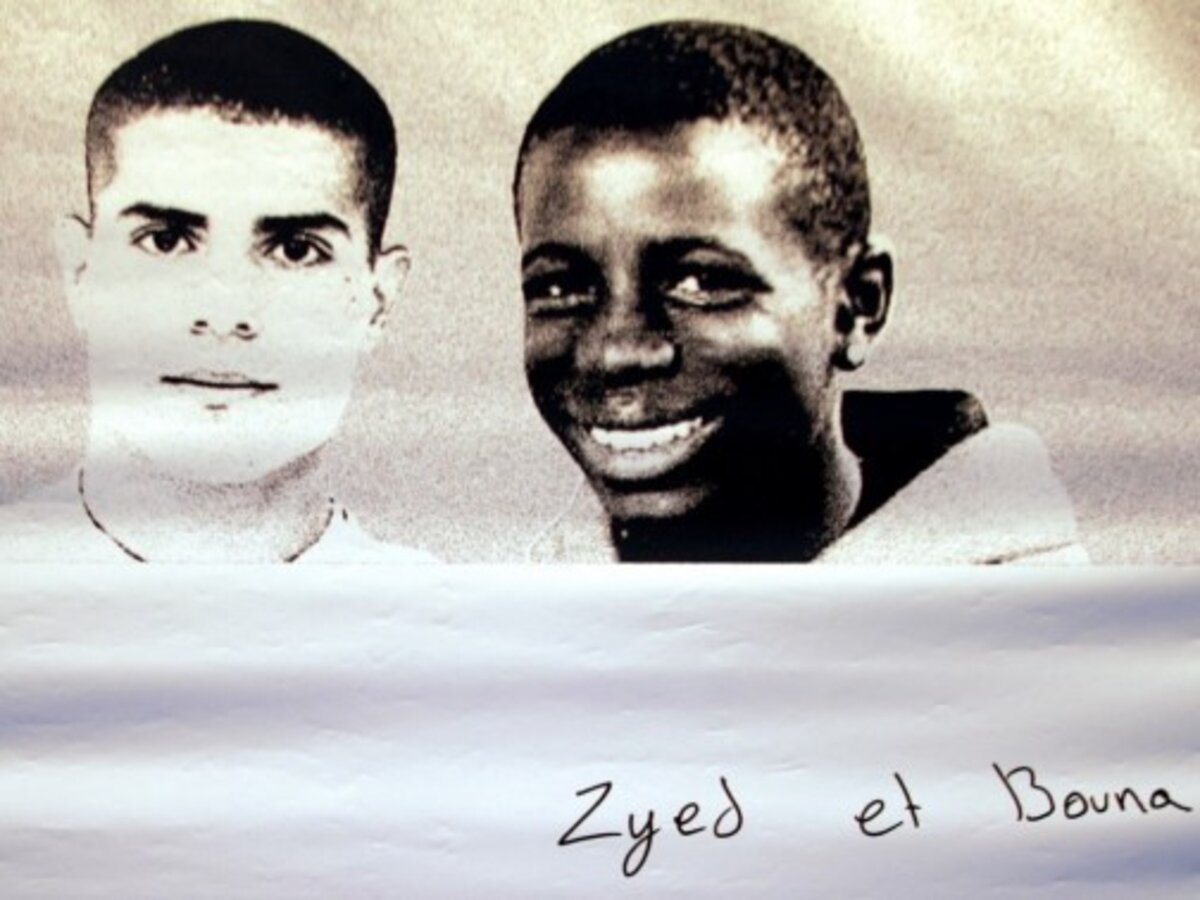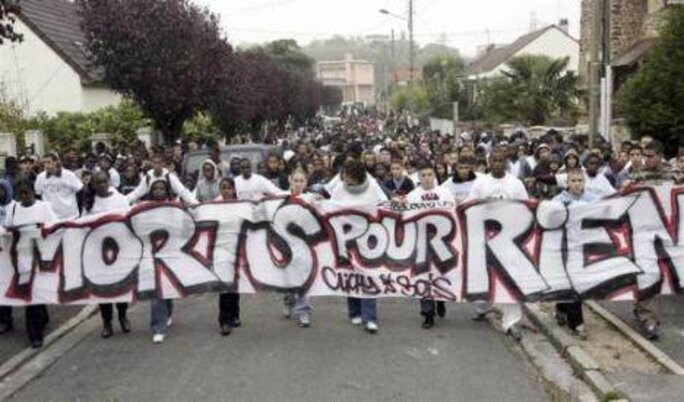A decision to drop legal proceedings against two policemen accused of failing to attempt to prevent the fatal electrocution near Paris of two teenagers they were trying to arrest – an incident which sparked nationwide riots – was overturned on Wednesday by France’s highest appeals court.
Bouna Traoré, 15, and Zyed Benna, 17, were returning home with a third teenager after a football match on October 27th 2005 in the Paris suburb of Clichy-sous-Bois when a police patrol began pursuing them. The youngsters sought refuge in a building housing an electrical transformer.
The police officers claimed they suspected the youths had been stealing goods from a local construction site, an allegation hotly disputed by the boys’ families. The police officers did not follow the three youths onto the EDF electrical substation, and eventually left the scene, after which Bouna Traoré and Zyed Benna were killed by an electrical discharge, and the third teenager received serious burns.

The police officers failed to alert the EDF utility company to the potential danger. On one of the transcriptions of police radio conversations during the events, one officer is recorded as having said: “At the same time, if they enter the EDF site I wouldn’t bet much on their lives.”
The tragedy sparked weeks of rioting by youths across France’s suburban high-rise housing estates, leading to the declaration of a state of emergency for the first time since the 1955-1962 Algerian War of Independence.
A subsequent judicial investigation, by three successive independent magistrates, concluded in 2010 that two officers should stand trial on charges of ‘failure to render assistance to persons in danger’. The public prosecutor’s department, comprised of magistrates who are hierarchically dependent upon the justice ministry, opposed that decision and the case against the police officers was ordered to be dropped last year by a Paris court which found that there was insufficient evidence for a trial.
An appeal mounted by families of the two dead boys led to the ruling on Wednesday, in which the appeals court found that there was sufficient evidence to suppose that the police officers should not have left the site of the electrical transformer, which was clearly dangerous, before ensuring that the youths had left. It ordered that the case against the officers should now be the subject of a renewed judicial investigation led by magistrates in the western city of Rennes, opening the way for an eventual trial (the full text of the ruling, in French, is available here).
“It is a breakthrough, a big day,” commented Siyakha Traoré, Bouna’s elder brother, after the judgment. “I am relieved, now we can move forward. Now I expect explanations, that everybody be questioned and that the justice system does its job. I had hope, for me they are not dead for nothing, they must be given justice.”
The case is a politically highly-charged affair, in which the issue of the independence of France’s investigating magistrates has once again been brought under the spotlight. At the time of the events, in October 2005, then-interior minister Nicolas Sarkozy adopted a high-profile defence of the police officers, whom he at first claimed had not been pursuing the youths. He later said they were being pursued for suspected robbery.
This was subsequently found to be untrue, both by the magistrates in charge of the initial judicial investigation, and the findings of an internal police review of the case.
“Everything in this case has been extravagant,” commented one of the lawyers for the families of Bouna and Zyed, Jean-Pierre Mignard, at a press conference earlier this month ahead of the appeals court ruling. “There were very hard words and counter-truths uttered by the interior minister of the time, Nicolas Sarkozy, about the offences that these children were supposed to have committed, and that there had not been a chase.”
“It took eight days for an independent investigating magistrate to be appointed, and the authorities only finally moved because incidents erupted the same night and became transformed into riots,” he added. “Lies were made over several days, and at the highest level there was denial of the obvious.”

Sarkozy, who in autumn 2005 was preparing to announce his candidature for the 2007 presidential elections, adopted a tough stance against the subsequent riots that lasted three weeks during which no-go areas were set-up by gangs of youths in public housing estates around many major French cities and when thousands of cars were torched. The events symbolized the estrangement of vast populations of youths in these low-income suburban zones, commonly described as ‘les banlieues’, which count higher-than-average unemployment and a large number of families of immigrant origin, and where tensions between locals and police had long reached a critical state.
The deaths of Zyed and Bouna became a rallying cause for many youngsters of France’s banlieues, where there is deep resentment at what is perceived to be gratuitous police harassment of youths, especially those of families of immigrant origin. The frustrations were exacerbated by the stance of the public prosecutor’s office, after Sarkozy became president, which opposed the findings of the independent judicial investigation into the case.
“I am proud of French justice,” said Mignard, speaking after Wednesday’s ruling, which he described as “historic”.
-------------------------
English version: Graham Tearse


